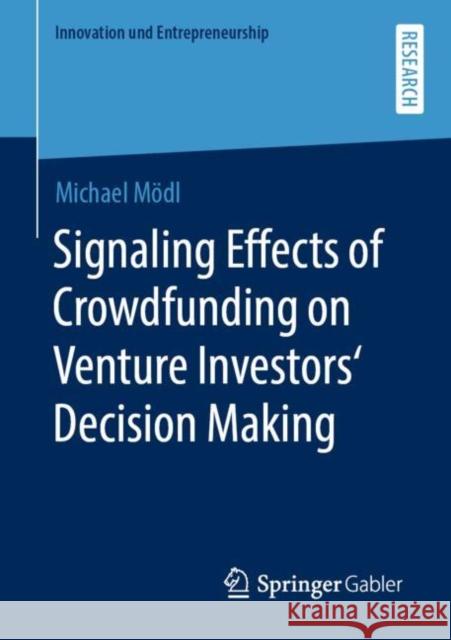Signaling Effects of Crowdfunding on Venture Investors' Decision Making » książka
topmenu
Signaling Effects of Crowdfunding on Venture Investors' Decision Making
ISBN-13: 9783658315894 / Angielski / Miękka / 2020 / 192 str.
Kategorie:
Kategorie BISAC:
Wydawca:
Springer Gabler
Seria wydawnicza:
Język:
Angielski
ISBN-13:
9783658315894
Rok wydania:
2020
Wydanie:
2020
Numer serii:
000440453
Ilość stron:
192
Waga:
0.26 kg
Wymiary:
21.01 x 14.81 x 1.14
Oprawa:
Miękka
Wolumenów:
01
Dodatkowe informacje:
Wydanie ilustrowane











